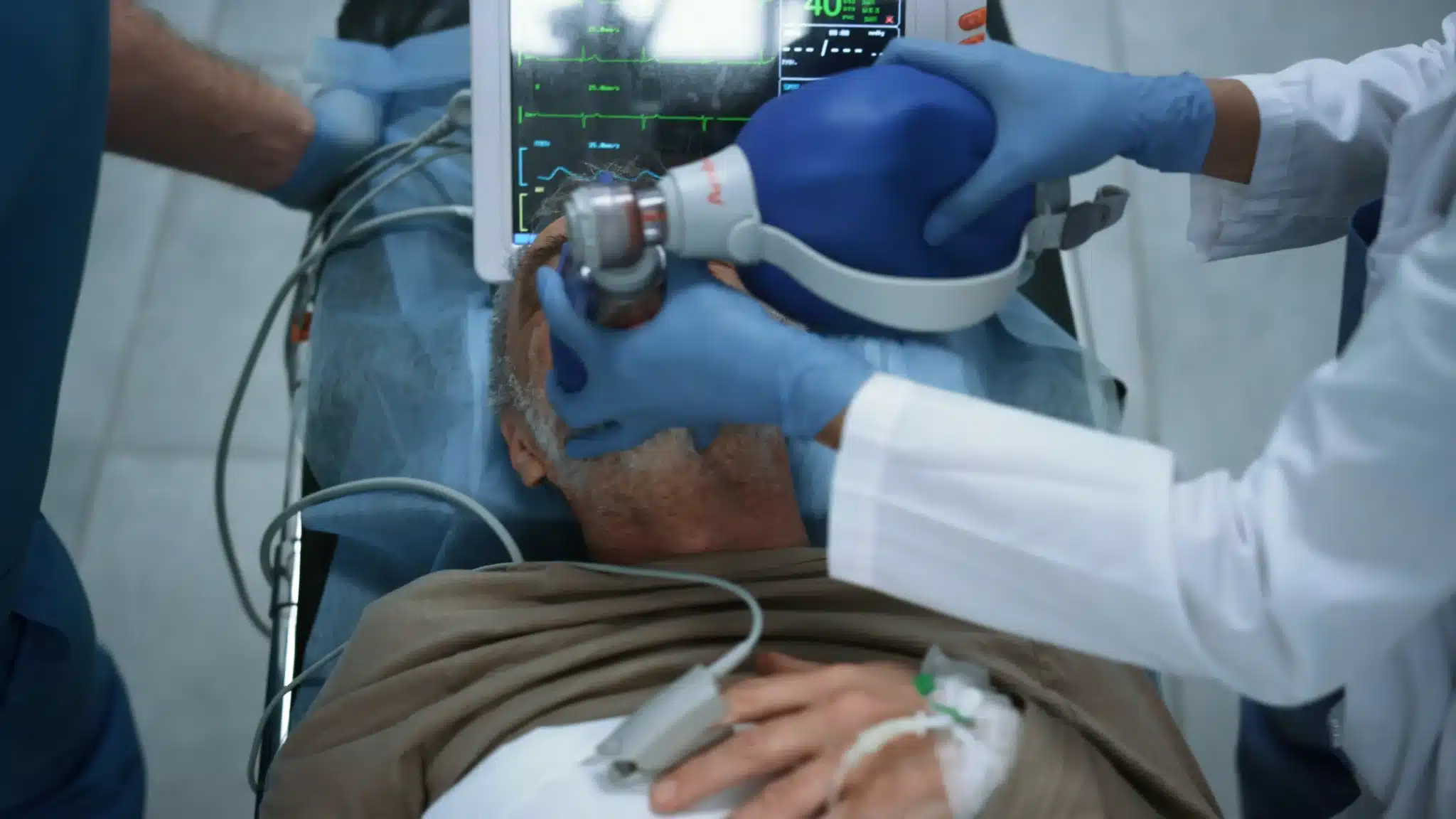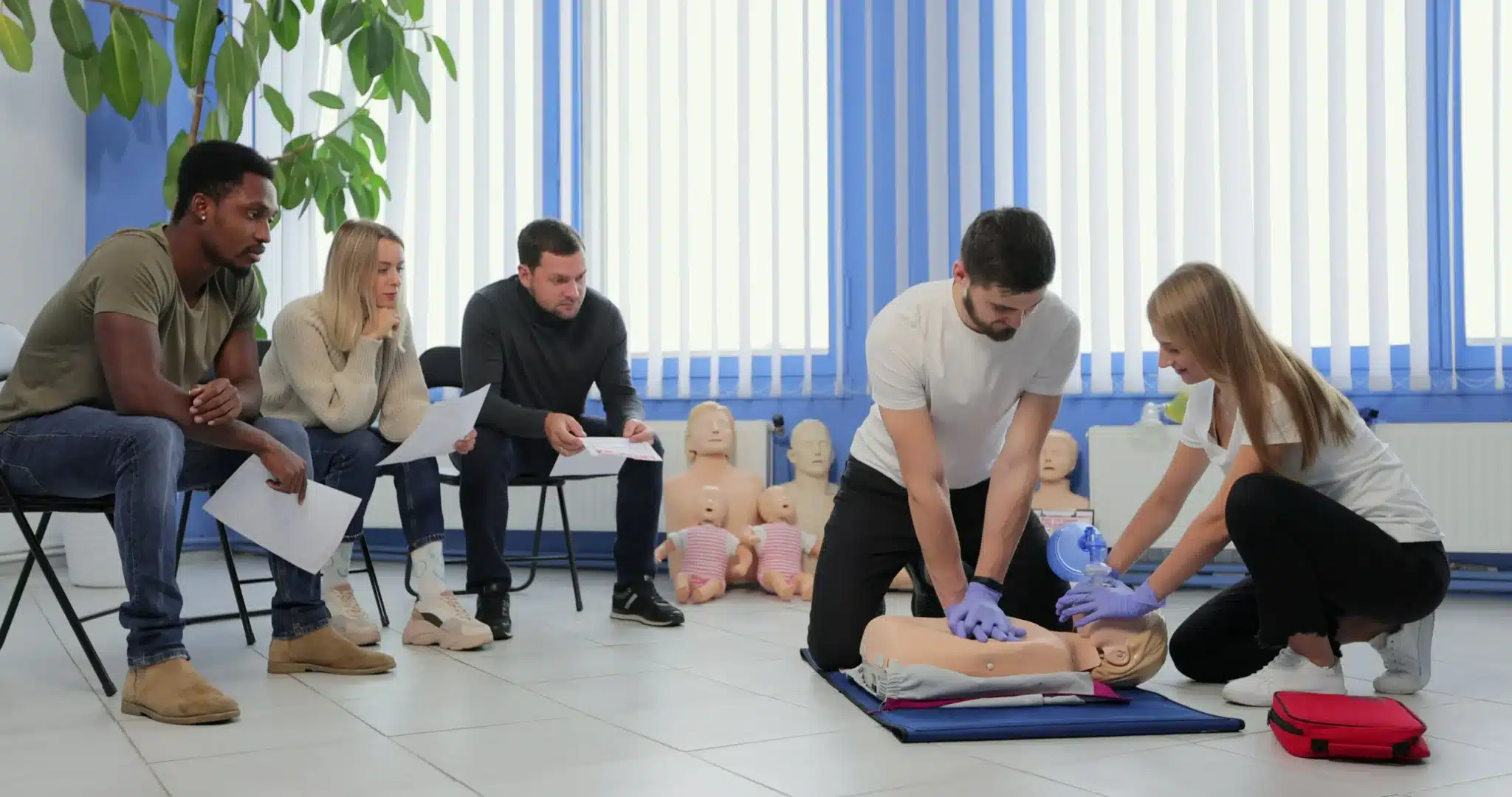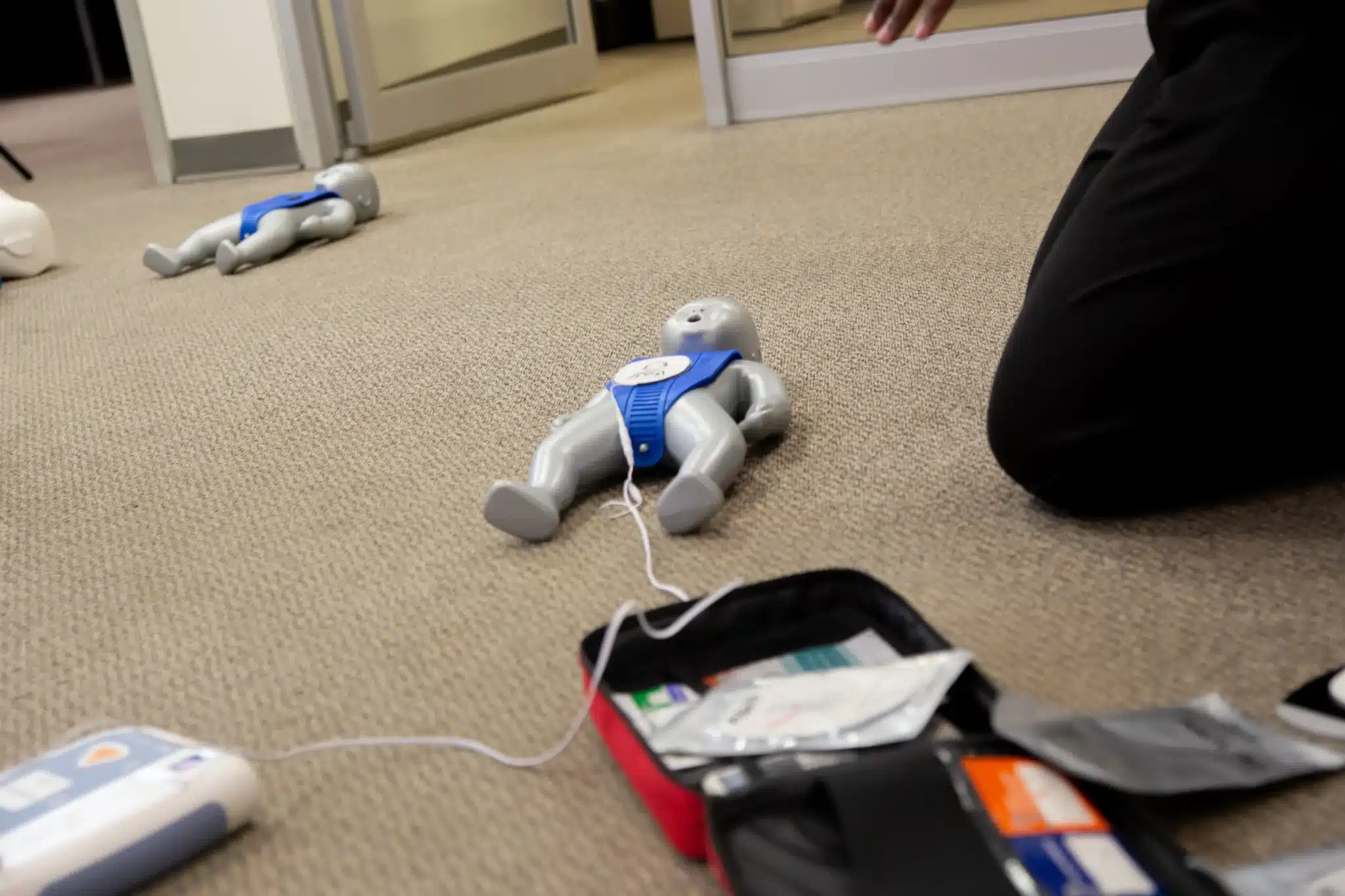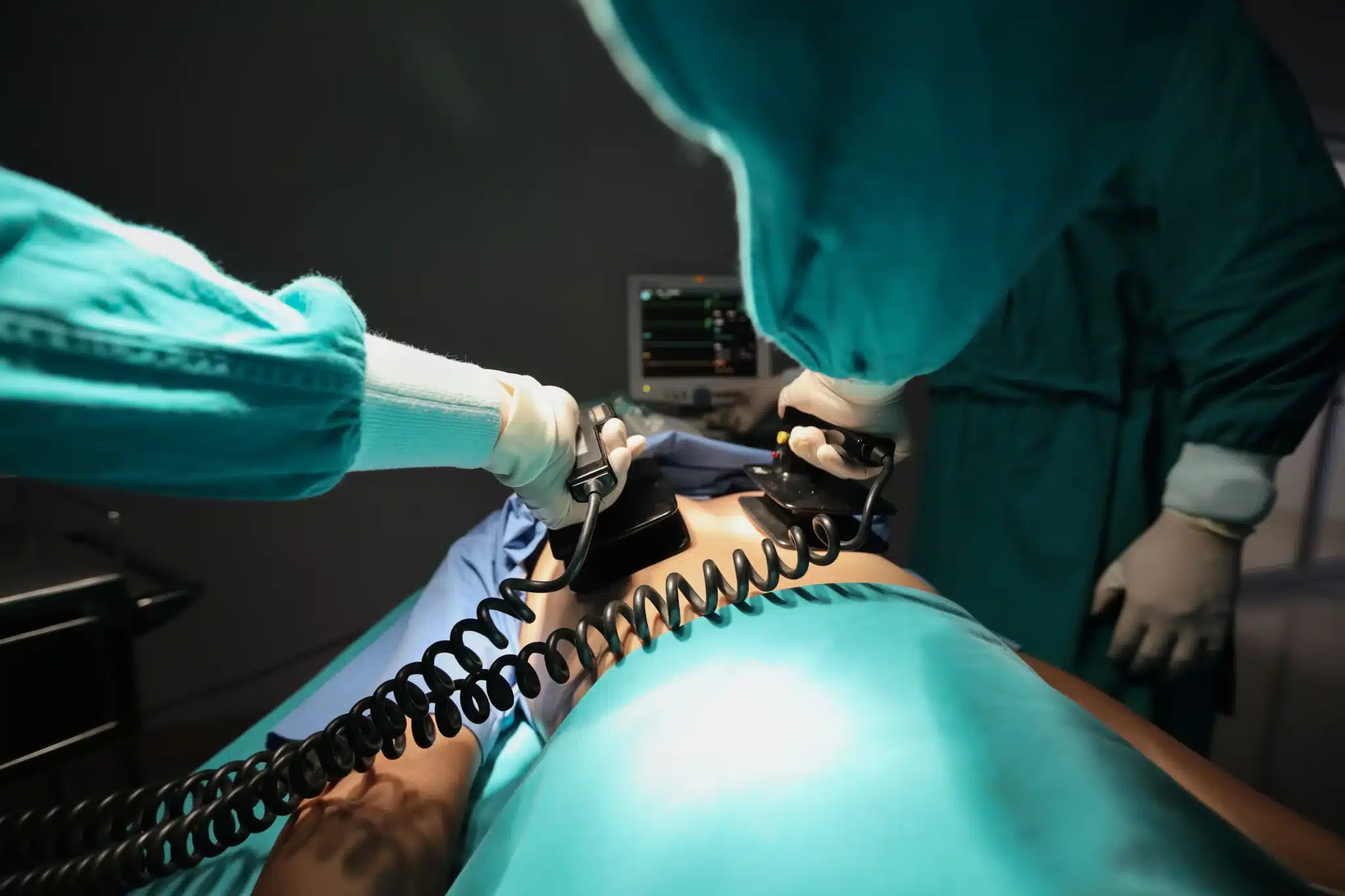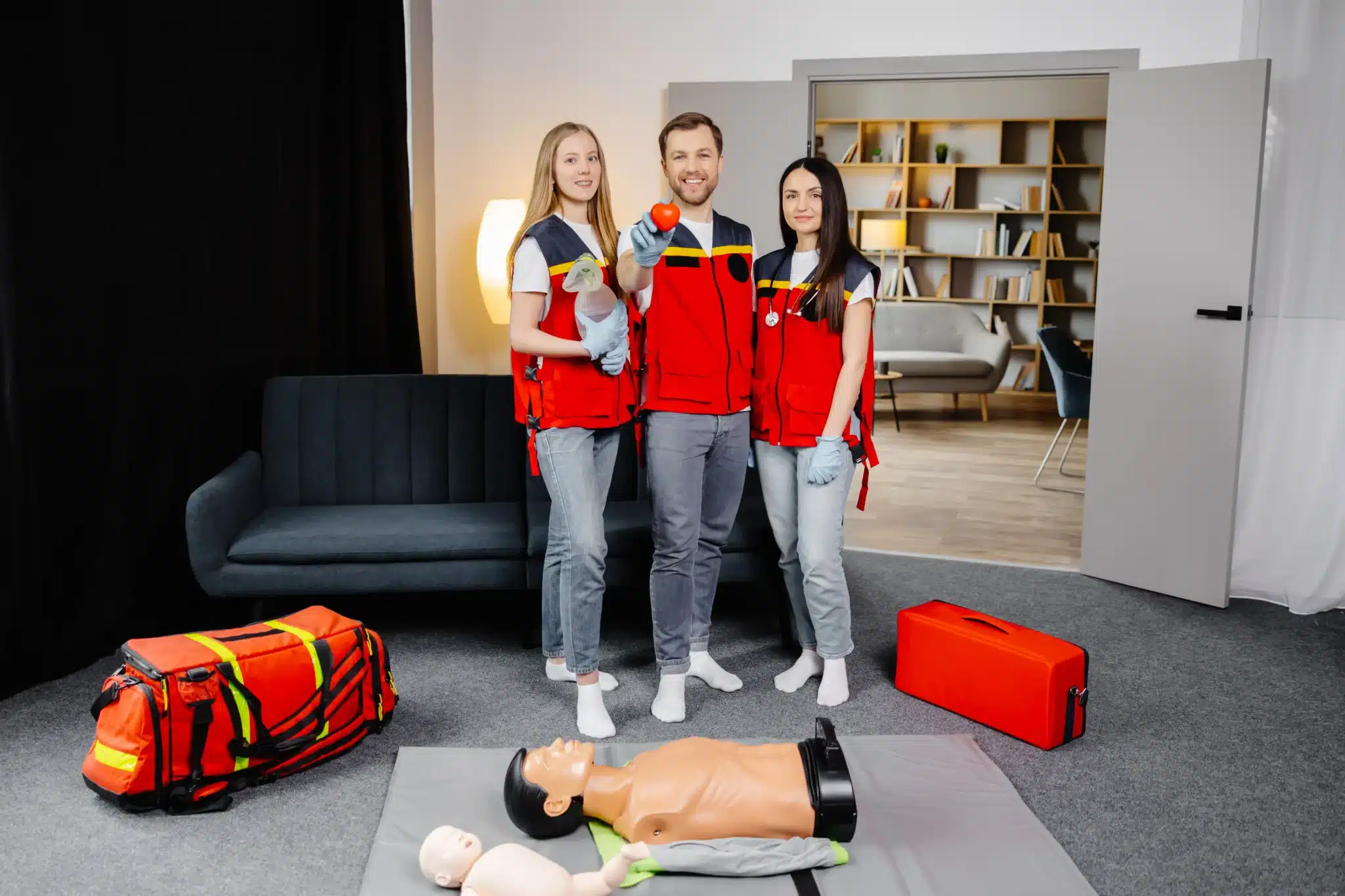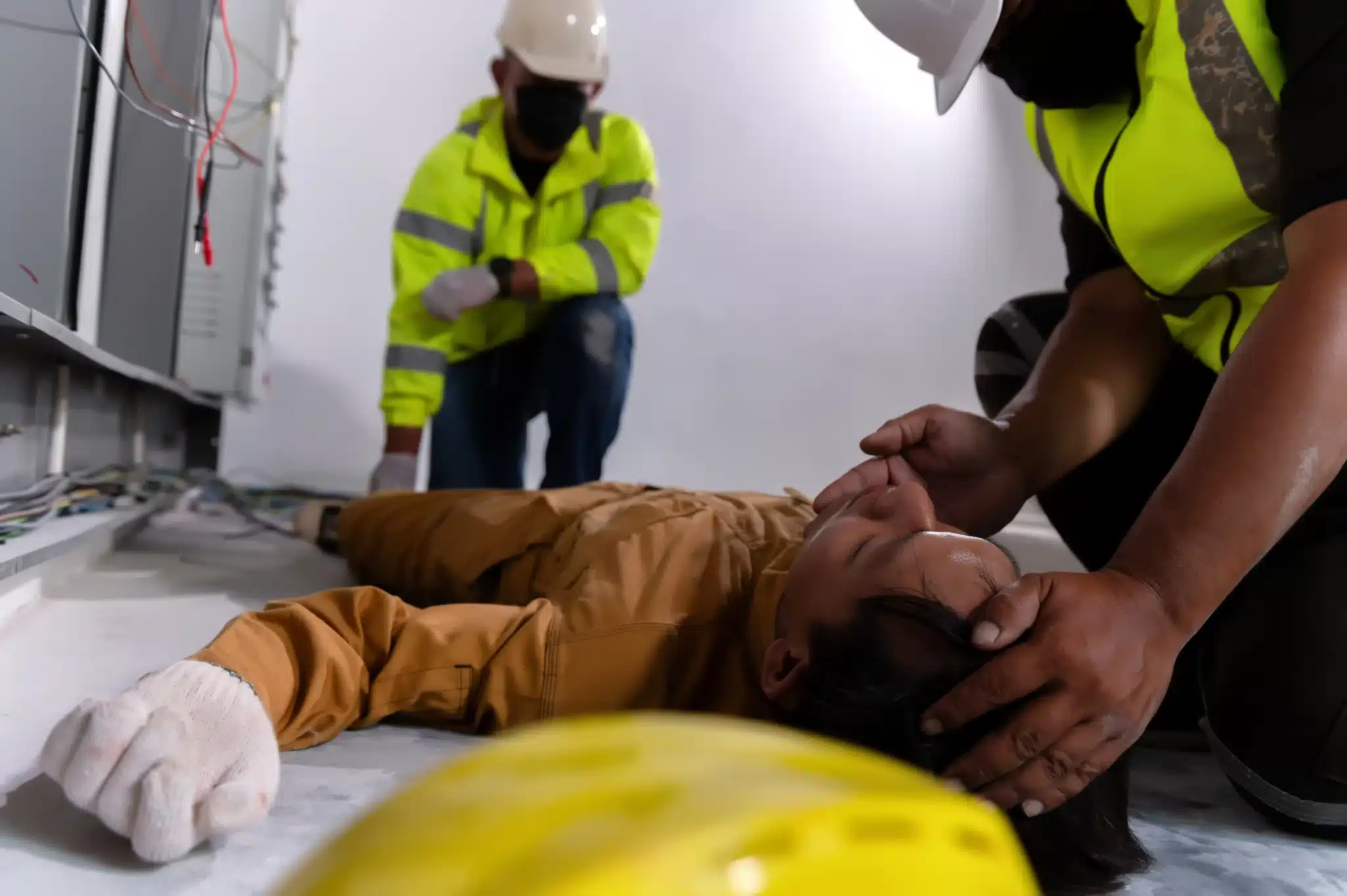Emergencies can happen anytime, anywhere. Being equipped with life-saving skills like CPR is an invaluable asset. If you’re in San Jose and your CPR certification is about to expire, you’re probably looking for information on CPR renewal in San Jose. This guide will provide you with a clear roadmap for navigating the renewal process. We’ll cover the steps involved, the different types of courses available in San Jose, and how to choose the right training provider for your needs. We’ll also discuss the importance of staying current with the latest CPR guidelines and techniques. Let’s ensure you’re always prepared to respond confidently and effectively in a critical situation.
Key Takeaways
- Stay current with the latest life-saving techniques: CPR renewal ensures you’re equipped with the most recent guidelines and best practices, boosting your confidence and effectiveness in emergencies.
- Find a CPR renewal course that fits your lifestyle: Explore various training providers offering different learning formats and schedules. Consider factors like instructor qualifications, course content, and student reviews to choose the best fit.
- CPR renewal is accessible and affordable: Many providers offer discounts, group rates, and flexible payment options. Don’t let cost be a barrier to maintaining these essential skills.
What is CPR Renewal in San Jose?
CPR renewal in San Jose is how certified professionals keep their life-saving skills sharp. CPR certification is valid for two years, because CPR skills and knowledge can decline over time. It’s crucial to renew your certification before it expires, ideally within 30 days, to avoid retaking the full CPR recertification course. Staying current with CPR training is essential for anyone working in healthcare, education, or childcare—or just wanting to be prepared. Regular renewal ensures you’re equipped with the most current techniques and guidelines from organizations like the American Heart Association. This keeps you ready to respond effectively in a real emergency.
Why CPR Certification Renewal Matters
Maintaining a current CPR certification shows your dedication to providing aid when it matters most. It demonstrates a commitment to having these important skills and being prepared for critical moments. Refreshing your CPR skills through renewal courses ensures you stay up-to-date with the latest best practices. CPR skills can fade if not practiced regularly, so renewal courses offer the chance to refine these skills and build confidence.
Common Misconceptions About CPR Renewal
One common misconception is that CPR certification is only for medical professionals. These skills are invaluable for anyone, from teachers and coaches to parents and grandparents. Another myth is that initial CPR training lasts forever. CPR certification requires renewal every two years to ensure individuals stay updated on current CPR practices. Finally, some believe that CPR alone can restart a stopped heart. While CPR is crucial for maintaining blood flow and oxygen to the brain, it often works best alongside other life-saving interventions like defibrillation and advanced medical care. Understanding these facts highlights the importance of CPR renewal and its role in effective emergency response.
Find Top CPR Renewal Classes in San Jose
Finding the right CPR renewal class can feel overwhelming with so many options. To simplify your search, I’ve compiled a list of reputable training providers in San Jose. This list includes a variety of organizations, from nationally recognized names to local businesses, offering various learning formats and specializations.
American Red Cross
The American Red Cross offers a blend of in-person and blended online/in-person CPR and first aid training in San Jose. Taught by experts, their courses emphasize hands-on skills and provide participants with the confidence to respond effectively in emergencies. Their certifications are valid for two years, and they offer renewal courses as your expiration date approaches.
Fremont CPR Classes
Fremont CPR Classes provides a range of American Heart Association (AHA) courses, including BLS, ACLS, and First Aid. They prioritize high-quality instruction, convenient scheduling, and competitive pricing. Serving Fremont, Newark, and San Jose, they also offer discounts for group registrations, making them a great option for businesses and families.
Emergency and Health Training Center
The Emergency and Health Training Center offers AHA-certified CPR, BLS, ACLS, PALS, and First Aid classes throughout San Jose and the Bay Area. With an emphasis on hands-on learning and group discounts, they provide accessible and affordable training for various needs.
CPR Certification Institute
The CPR Certification Institute offers both online and in-person CPR and First Aid training. Their courses are designed to meet standard workplace requirements and prioritize practical skills development, making them a solid option for CPR renewal.
San Jose CPR Training Center
The San Jose CPR Training Center offers various AHA-certified CPR and first aid courses, including BLS renewal courses. They focus on providing high-quality training with flexible scheduling to accommodate busy professionals.
ProCPR
ProCPR offers accessible online CPR certification and recertification courses. Their courses cover the latest CPR guidelines and techniques, providing a convenient option for those renewing their certification.
CPR Renewal Process: How it Works
Knowing when and how to renew your CPR certification is essential to maintaining your life-saving skills. This section clarifies the process so you can stay prepared.
Renew Your CPR Certification: Steps to Take
CPR renewal is straightforward. First, find an American Heart Association Training Center near you. Fremont CPR Classes offers various CPR renewal courses in Fremont, Newark, and San Jose. Once you’ve chosen a provider, select a class that fits your schedule and register. You’ll review essential CPR skills and knowledge and then demonstrate your proficiency through a practical exam. After successful completion, you’ll receive your updated CPR certification card.
Time Requirements and Certification Validity
CPR certifications are typically valid for two years. This timeframe reflects the fact that CPR skills and knowledge can decline over time. Regular renewal ensures you stay sharp and confident in your abilities. Some workplaces may require annual renewal, so check your employer’s specific guidelines.
Handle Expired Certifications
Ideally, renew your CPR certification before it expires. Many providers offer grace periods, often around 30 days, allowing renewal with a refresher course. However, if your certification has been expired for longer than the grace period, you’ll likely need to take a full recertification course. This ensures you receive comprehensive training and regain full competency in CPR techniques. Don’t let your skills lapse—stay current and ready to respond to emergencies.
Choose the Right CPR Renewal Format
Renewing your CPR certification involves a few choices. The best format depends on your learning style, schedule, and preferences. Let’s explore the most common options: in-person, online, and blended learning.
In-Person Classes: Hands-On Learning
In-person CPR renewal classes offer hands-on training with certified instructors. This format is ideal for those who learn best in a traditional classroom setting and value direct interaction. You’ll practice techniques on mannequins and receive real-time feedback, ensuring you’re fully prepared to respond to emergencies. The Red Cross emphasizes the importance of hands-on training in their CPR classes, taught by experts in a supportive environment. This direct, practical experience can build confidence and proficiency in essential life-saving skills. For those seeking a more tactile and interactive learning experience, in-person classes offer a valuable opportunity to refine your skills and ask questions in real-time.
Online Renewal: Flexible and Convenient
If your schedule is packed, online CPR renewal courses offer maximum flexibility. You can complete the coursework at your own pace, anytime, anywhere. These courses typically include training on CPR, choking relief, and using AEDs, as highlighted by Fremont CPR Classes. Online renewal courses cover the latest ECC guidelines and techniques, ensuring you’re up-to-date on best practices for responding to cardiac emergencies, according to CPR Care. This format is perfect for self-directed learners who prefer independent study. This digital approach allows you to fit the training around your busy schedule, making it a convenient option for many professionals and caregivers.
Blended Learning: Combining the Best of Both
Blended learning combines the convenience of online learning with the benefits of in-person instruction. You’ll complete the theoretical portion online, then attend a shorter, hands-on skills session. The Red Cross offers blended learning CPR courses, allowing you to study online and then practice in person. This hybrid approach offers a good balance for those who want flexibility but also recognize the value of hands-on practice and expert guidance. Fremont CPR Classes also provides this format for many of their courses, including BLS and ACLS certification, giving students a versatile option that caters to different learning needs.
CPR Renewal Costs and Value
Getting recertified in CPR doesn’t have to break the bank. Understanding the typical costs and exploring ways to save can make the process more affordable. Let’s explore CPR renewal costs and how to find the best value.
Average CPR Renewal Prices
In San Jose, BLS renewal courses typically cost between $65 and $90. This usually covers your course materials, instruction, and a certification card, which is valid for two years. For a good benchmark, Morgan Hill CPR classes offers BLS renewal for around $70, including same-day certification. Remember that prices can vary, so it’s always a good idea to check with a few different providers.
Find Discounts and Promotions
Want to lower the cost of your CPR renewal? Many training centers in San Jose offer seasonal promotions and special deals. Check with local providers like Fremont CPR Classes to see what current discounts are available. You might be surprised at the savings you can find.
Save with Group Registration
If you’re part of a team or organization, registering as a group can significantly reduce the per-person cost. Many training centers, including Fremont CPR Classes, offer group discounts. For example, groups of two to five people could get 20% off their registration fees. Contact us to learn more about our current group discounts and how to register.
Evaluate CPR Training Providers
Choosing the right CPR training provider is crucial for receiving high-quality instruction. Here’s what to consider when evaluating different options:
Check Instructor Qualifications and Experience
First, verify the instructor’s qualifications and experience. Experienced instructors bring real-world knowledge and best practices to the classroom. Look for instructors certified by reputable organizations like the American Red Cross, which trains professional instructors and reviews its curriculum through its Scientific Advisory Council. This ensures your training is up-to-date and taught by experts. You can also research instructors’ backgrounds and experience in the field. For example, Fremont CPR Classes highlights its certified instructors and their commitment to providing high-quality training. You can learn more about their BLS certification on their website.
Review Course Content and Curriculum
Next, understand what the course covers. Does it align with the latest CPR guidelines? Many CPR renewal courses focus on core life-saving skills, including CPR, AED use, and relieving choking. Ensure the curriculum includes these essentials. Also, consider the format. Some providers offer online, in-person, and blended learning options. Choose the format that best suits your learning style and schedule. If you’re looking for group discounts, check out Fremont CPR Classes for options.
Read Student Reviews and Testimonials
Finally, see what other students say. Online reviews and testimonials offer valuable insights into the quality of instruction. Look for training centers with consistently positive feedback about their instructors and courses. Student reviews can give you a sense of what to expect from the training experience. A reputable training center will often showcase student testimonials, reflecting the quality of their instruction. You can find a helpful directory of CPR training providers in Northern California, along with reviews, on the Fremont CPR Classes website. Don’t hesitate to contact them if you have any questions.
Prepare for Your CPR Renewal Class
Getting ready for your CPR renewal class can make the recertification process smoother. Here’s what you should know:
What to Expect During the Course
CPR renewal courses in San Jose offer various learning formats. You can choose traditional in-person classes for hands-on learning or opt for blended learning, which combines online coursework with in-person skills sessions. This flexibility allows you to fit the training into your schedule. Expect a review of essential CPR techniques, demonstrations, and practice scenarios. Your instructor will guide you through the latest guidelines and answer any questions.
Key Skills to Focus On
CPR renewal courses cover core life-saving skills, including CPR for adults, children, and infants, how to use an AED (automated external defibrillator), and relieving choking. Reviewing these skills beforehand will help you make the most of your class time. You’ll also learn about the most recent changes in CPR guidelines, ensuring you’re up-to-date on best practices. A solid understanding of these key areas will boost your confidence in responding to emergencies.
Maintain Your Certification
After completing your CPR renewal class, staying current with your skills is crucial. Regularly practicing the techniques you learned will help you retain the information and react effectively in a real-life emergency. Consider joining refresher courses or practicing with friends or family to keep your skills sharp. Remember, staying certified means you’re prepared to make a difference when it matters most. Regular renewal ensures you’re equipped with the most up-to-date techniques and knowledge. CPR skills can fade over time if not practiced, so consistent review is key.
Related Articles
- CPR Certification in San Jose: A Complete Guide
- Why CPR Matters in Healthcare – Fremont CPR Classes
- CPR Training in Newark: Your Complete Guide – Fremont CPR Classes
- BLS Renewal San Jose: Your Complete Guide – Fremont CPR Classes
- CPR Training in San Jose: Your Complete Guide – Fremont CPR Classes
Frequently Asked Questions
How often do I need to renew my CPR certification? CPR certifications are typically valid for two years. It’s best to renew within 30 days of the expiration date to avoid needing to retake the full course. Some employers may require annual renewal, so it’s always a good idea to check their specific guidelines.
What are my options for CPR renewal classes? You have several choices: in-person classes offer hands-on learning with an instructor, online courses provide flexibility for busy schedules, and blended learning combines online coursework with an in-person skills session. Choose the format that best suits your learning style and availability.
How much does CPR renewal cost in San Jose? BLS renewal courses in San Jose typically range from $65 to $90. Keep an eye out for discounts, as many providers offer seasonal promotions or price breaks for group registrations.
What if my CPR certification has already expired? If your certification is expired, but still within the grace period (often 30 days), you can usually take a renewal course. If it’s been longer, you’ll likely need to retake the full certification course.
How can I find a reputable CPR training provider? Look for providers with certified instructors experienced in the field. Check the course content to ensure it aligns with the latest guidelines. Reading student reviews and testimonials can also give you valuable insights into the quality of instruction. A good training center will readily provide information about their instructors and curriculum.
